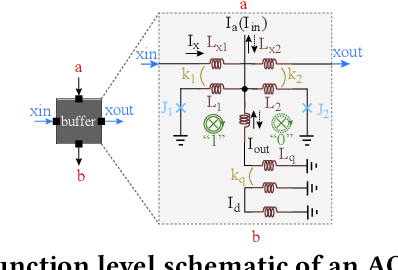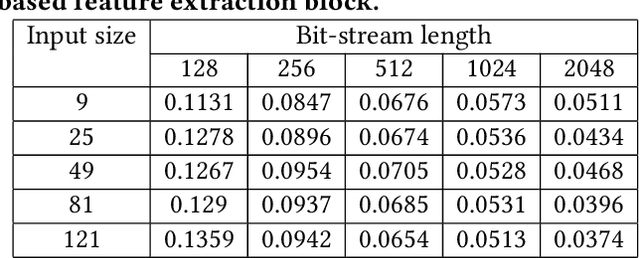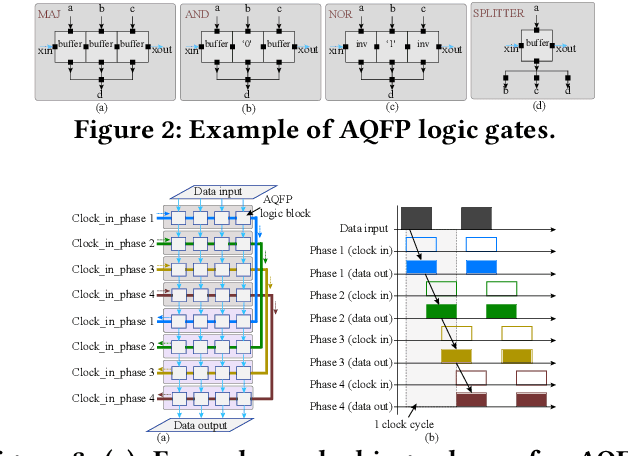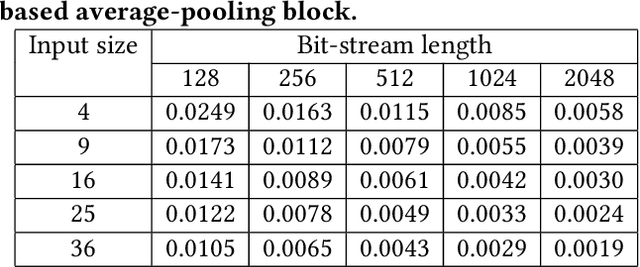Wenhui Luo
A Stochastic-Computing based Deep Learning Framework using Adiabatic Quantum-Flux-Parametron SuperconductingTechnology
Jul 22, 2019



Abstract:The Adiabatic Quantum-Flux-Parametron (AQFP) superconducting technology has been recently developed, which achieves the highest energy efficiency among superconducting logic families, potentially huge gain compared with state-of-the-art CMOS. In 2016, the successful fabrication and testing of AQFP-based circuits with the scale of 83,000 JJs have demonstrated the scalability and potential of implementing large-scale systems using AQFP. As a result, it will be promising for AQFP in high-performance computing and deep space applications, with Deep Neural Network (DNN) inference acceleration as an important example. Besides ultra-high energy efficiency, AQFP exhibits two unique characteristics: the deep pipelining nature since each AQFP logic gate is connected with an AC clock signal, which increases the difficulty to avoid RAW hazards; the second is the unique opportunity of true random number generation (RNG) using a single AQFP buffer, far more efficient than RNG in CMOS. We point out that these two characteristics make AQFP especially compatible with the \emph{stochastic computing} (SC) technique, which uses a time-independent bit sequence for value representation, and is compatible with the deep pipelining nature. Further, the application of SC has been investigated in DNNs in prior work, and the suitability has been illustrated as SC is more compatible with approximate computations. This work is the first to develop an SC-based DNN acceleration framework using AQFP technology.
 Add to Chrome
Add to Chrome Add to Firefox
Add to Firefox Add to Edge
Add to Edge